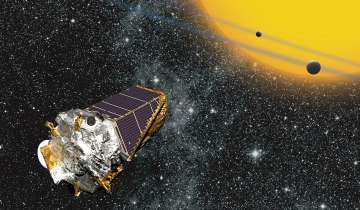Google's latest artifical intelligence has helped US space agency NASA make its latest discovery using its planet-hunting Kepler space telescope.
NASA will announce the discovery at a media teleconference on December 14, the agency said.
Besides NASA scientists, Christopher Shallue, Senior Software Engineer at Google AI in Mountain View, California, will also attend the briefing.
Machine learning is an approach to artificial intelligence and demonstrates new ways of analysing Kepler data.
NASA's Kepler space telescope has gazed at more than 150,000 stars and continues to transmit back data that leads to important discoveries of celestial objects in our galaxy, including first-time observations of planets outside our solar system.
When Kepler launched in March 2009, scientists did not know how common planets were beyond the solar system.
Thanks to Kepler's treasure trove of discoveries, astronomers now believe there may be at least one planet orbiting every star in the sky.
Kepler completed its prime mission in 2012 and went on to collect data for an additional year in an extended mission.
In 2014, the spacecraft began a new extended mission called K2, which continues the search for planets outside the solar system, known as exoplanets, while introducing new research opportunities to study young stars, supernovae and other cosmic phenomena.

